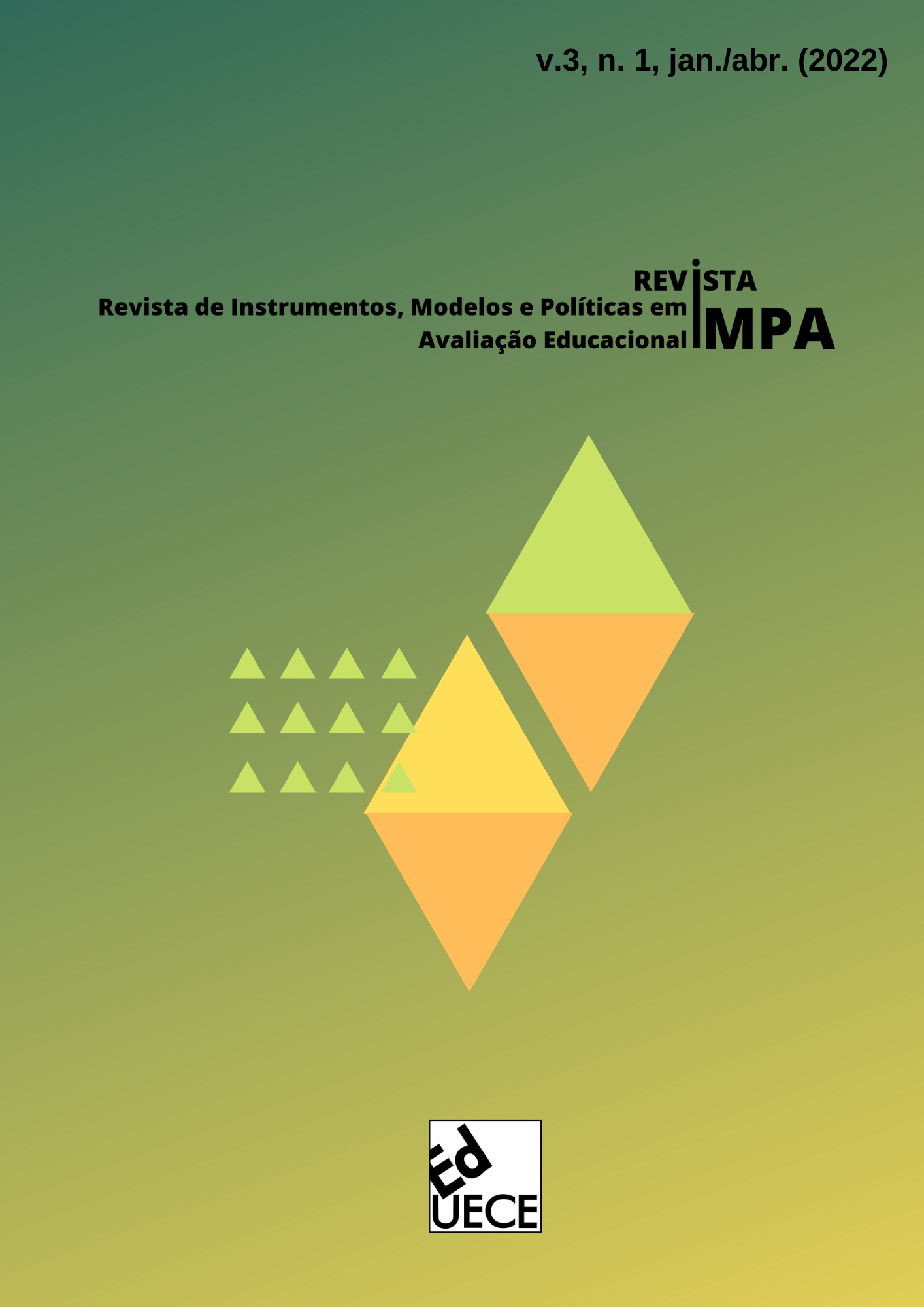Research production in the discipline of scientific method: use of electronic form in remote learning
DOI:
https://doi.org/10.51281/impa.e022002Keywords:
Method Scientific, ResearchAbstract
This study is a report on experiences of using an electronic form in the teaching of the subject of Scientific Methodology in 2020, with eighth grade classes of elementary school, with the school community as the research audience, during remote teaching in the covid-19 pandemic in 2020. The objective was to carry out researches promoting scientific methodology, protagonism and citizenship through themes of interest to the students themselves, motivating digital inclusion and technologies in the educational process. It is concluded that the teaching of the Scientific Methodology subject was effective and satisfactory during the remote time with the use of electronic forms. It is estimated that the impact on students' learning has occurred significantly with the digital inclusion and technologies in the educational process, with the carrying out of researches promoting critical thinking, protagonism and in their citizenship, in addition to contributing to the formation and teaching practice.
Metrics
References
BRASIL. Base Nacional Comum Curricular (BNCC). 2020. Disponível em: http://basenacionalcomum.mec.gov.br/images/BNCC_EI_EF_110518_versaofinal_site.pdf . Acesso em 04 ago. 2021.
BRASIL. Os benefícios das novas tecnologias na educação. 2021. Disponível em: https://www.educamaisbrasil.com.br/educacao/noticias/os-beneficios-das-novas-tecnologias-na-educacao . Acesso em 04 jun. 2021.
CRESWELL, John W. Projeto de pesquisa: métodos qualitativo, quantitativo e misto, 2. ed. - Porto Alegre: Artmed, 2007. ISBN 978-85-363-0892-0, 248 p. Disponível em https://edisciplinas.usp.br/pluginfile.php/696271/mod_resource/content/1/Creswell.pdf Acesso em 9 set. 2021.
ESTEVE, José Manuel. La profesión docente ante los desafios de la sociedade del conocimiento. In: MEDRANO, Consuelo Velaz de; VAILLANT, Denise. Aprendizaje y desarrollo profesional docente. Madrid: Santillana, 2009. p. 17-27. Disponível em: http://www.redfforma.cl/documentos_sitio/86855_APRENDYDESARRPROFESIONAL-2.pdf. Acesso em 30 jul. 2021.
FORTALEZA. Prefeitura municipal de fortaleza (PMF). 2020: o surgimento da pandemia no país. Disponível em: https://www.fortaleza.ce.gov.br/noticias/2020-o-surgimento-da-pandemia-no-pais#:~:text=desde%20a%20confirma%c3%a7%c3%a3o%20do%20primeiro,o%20v%c3%adrus%20atingisse%20a%20capital . Acesso em 04 jul. 2021.
FRANCO, Maria Amélia Santoro. Pedagogia da Pesquisa-Ação. Educação e Pesquisa, São Paulo, v. 31, n. 3, p. 483-502, 2005. Disponível em: https://www.scielo.br/j/ep/a/DRq7QzKG6Mth8hrFjRm43vF/?lang=pt&format=pdf . Acesso em 02 ago. 2021.
GIL, Antonio Carlos. Como elaborar um projeto de pesquisa. 4. ed. São Paulo: Atlas, 2007.
GOUVEIA, Mariley Simões Flória. Cursos de ciências para professores de 10 grau: elementos para uma política de formação continuada. Campinas, 1992. Tese (Doutorado em Educação – Metodologia de Ensino) - Universidade Estadual de Campinas, Campinas, 1992. Disponível em: file:///C:/Users/Patricia%20Campelo/Desktop/DOUTORADO/ARTIGOS/TESE%20Gouveia_MarileySimoesFloria_D.pdf Acesso em 15 jul. 2021.
KERELUIK, K. et al. What Knowledge Is of Most Worth: Teacher Knowledge for 21st Century Learning. Journal of Digital Learning in Teacher Education, Philadelphia, v. 29, n. 4, p. 127-140, 2013. Disponível em: https://files.eric.ed.gov/fulltext/EJ1010753.pdf Acesso em 10 ago. 2021.
LUZ, Emeli Borges Pereira. Desenvolvimento do pensamento reflexivo em atividades online e a formação inicial de professores de línguas. Entrelínguas, Araraquara, v. 2, n. 2, p.261-281, jul./dez. 2016. Disponível em: file:///C:/Users/Patricia%20Campelo/Desktop/DOUTORADO/ARTIGOS/artigo-07-emeli.pdf Acesso em 10 ago.2021.
LYOTARD, Jean-François. A condição pós-moderna. Trad. Ricardo Corrêa Barbosa. 8. ed. Rio de Janeiro: José Olympio, 2004.
MARCONI, Maria de Andrade; LAKATOS, Eva Maria. Fundamentos de metodologia científica. 6.ed. São Paulo: Atlas, 2005.
MONTEIRO, Renata Lúcia de Souza Gaúna; Santos, Dayane Silva. A utilização da ferramenta Google forms como instrumento de avaliação do ensino na Escola Superior de Guerra. Revista Carioca de Ciência, Tecnologia e Educação (online). Rio de Janeiro: v.4, n.2, 2019. E-ISSN 2596-058X. Disponível em https://recite.unicarioca.edu.br/rccte/index.php/rccte/article/view/72.
MORIN, Edgar. Desafios das transdisciplinaridade e da complexidade. In: AUDI, Jorge Luis Nicolas; MOROSINI, Marília Costa. (Org.). Inovação e interdisciplinaridade na universidade. Porto Alegre: EDIPUCRS, 2007. p. 22-28. Disponível em: https://ebooks.pucrs.br/edipucrs/acessolivre/livros/inovacaoeinterdisciplinaridade.pdf Acesso em 15 ago. 2021.
NUNES, Claudio Pinto; OLIVEIRA, Dalila Andrade. Trabalho, carreira, desenvolvimento docente e mudança na prática educativa. Educ. Pesqui., São Paulo, v. 43, n.1, p. 65-80, jan./mar. 2017. Disponível em: https://www.scielo.br/j/ep/a/kR6TNNYxWqH63t6SF8tGqZq/abstract/?lang=pt . Acesso em 04 jul. 2021.
SILVA, Juremir Machado da. Inter, multi ou transdisciplinaridade, uma questão de comunicação. In: AUDI, Jorge Luis Nicolas; MOROSINI, Marília Costa (Org.). Inovação e interdisciplinaridade na universidade. Porto Alegre: EDIPUCRS, 2007. p. 32-34. Disponível em: https://ebooks.pucrs.br/edipucrs/acessolivre/livros/inovacaoeinterdisciplinaridade.pdf Acesso em 04 jul 2021
SILVA ROCHA, Paulo César da; SILVEIRA JUCÁ, Sandro César; da SILVA, Solonildo Almeida. A evolução das Tecnologias da Informação e Comunicação na perspectiva de Touraine, Bell e Castells. Research, Society and Development, Universidade Federal de Itajubá, Itajubá, v. 8, n. 5, 2019. DOI: https://doi.org/10.33448/rsd-v8i5.928. Disponível em: https://rsdjournal.org/index.php/rsd/article/view/928 . Acesso em 02 ago. 2021.
THIOLLENT, Michel. Metodologia da pesquisa-ação. São Paulo: Cortez, 1985.
VASCONCELOS, Eduardo. Desinstitucionalização e Interdisciplinaridade em Saúde Mental. Rio de Janeiro: Escola de Serviço Social da UERJ, 1996.




